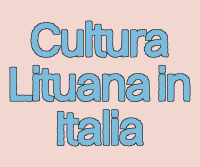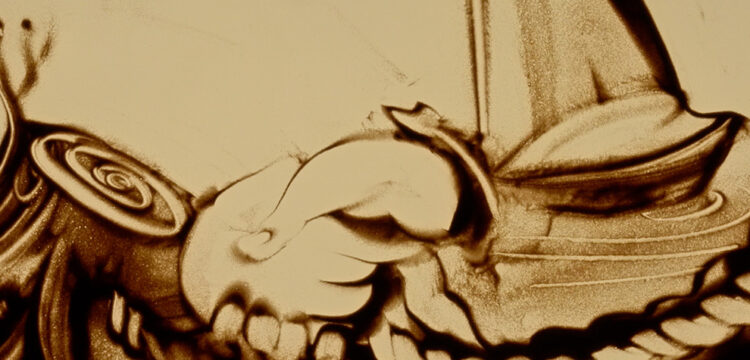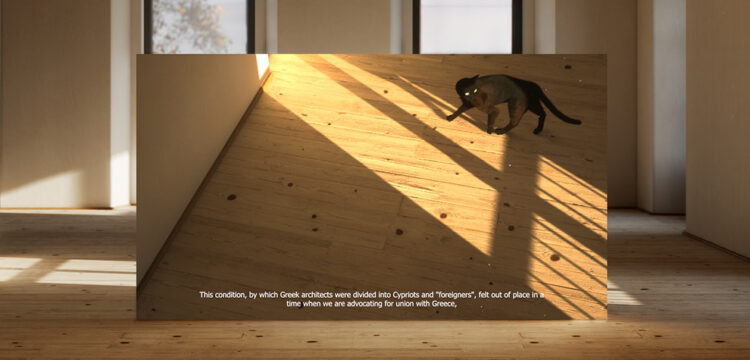A New Case Of Collective Loss
…of memory through displacement in Cyprus
The Cyprus Pavilion at 19th International Architecture Exhibition – La Biennale di Venezia presented (to the stones) we lent you our breath, and you whispered it back to the earth by architect, researcher, and curator Sevina Floridou. Cypriot curatorial and editorial collective Fisherwomxn has collaborated as artists and researchers for the realization of the exhibition, and they edited and published its catalogue, which has become the center of a political and cultural controversy. The text retraces the key moments of the events, followed by a letter of solidarity from the author to Fisherwomxn, whose members are Seta Astreou-Karides, Miriam Gatt, and Ioulita Toumazi.
On April 24, Pavlos Mylonas, a member of the Cypriot Democratic Party and President of the Education and Culture Committee of the Parliament, criticised Cyprus’s national participation in the 19th Venice Architecture Biennale over a statement found in the official publication released for the event. In the English version of the publication, the authors refer to the “Cypriot Greek” and “Cypriot Turkish” languages and, in the Greek version, they use the terms ελληνοκυπριακά (Greek Cypriot) and τουρκοκυπριακά (Turkish Cypriot), without making direct reference to the concept of language. Mylonas stated this as “completely unacceptable,” calling it a “baseless terminology” and urging the Ministry of Culture to intervene. In the book, the authors clearly state the motivation of their choices, describing it as an attempt to address a direct dialogue to the communities from which the knowledge(s) have been drawn (exhibition catalogue, p. 6), in preparation of the Pavilion’s project. We wish to continue practicing our tongues and to search for forgotten words that can hold meanings anew—the editors add, stressing on their desire to avoid hegemonic architecture, allowing it to leak back into the realities that surround us (p. 6). Moreover, Dr. Spyros Armostis, Lecturer in Linguistics at the University of Cyprus, says that “glottonyms such as ‘Cypriot Greek,’ ‘Cypriot Turkish,’ ‘Canadian French,’ ‘Maroccan Arabic,’ etc. have a long-standing tradition of use in the international academic literature, as they are the proper scientific terms to refer to these language varieties.”
On June 4, the Cyprus Deputy Ministry of Culture ordered the immediate withdrawal of the publication. Minister of Culture Vasiliki Kassianidou shifted the focus of concern from the linguistic choices to historical references in the text. Specifically, the publication includes passages that describe the events of 1974 as a “forced population exchange” and refer to the period as a “conflict,” rather than a Turkish invasion. Mylonas highlighted what he described as “historical inaccuracies that raise serious questions about executive oversight of funded projects” and warned that “the fact that the book, translated into English, circulates abroad makes this issue dangerous for our national cause.” Justifying the Ministry’s intervention on the basis of public funding provided for the project, the Ministry announced intentions to implement “corrective measures” (the final catalogue cost amounts to €11,600). These measures aim at providing clear guidelines for state-funded cultural representation abroad, without imposing restrictions on artistic expression. Kassianidou stated she was not presented with the publication beforehand and only learned of the content when attending the exhibition opening (which took place between 8–10 May 2025, A/N).
Mylonas’s actions have raised concerns about an alarming overlap between public funding for cultural events and a centralised and controlling approach for their management. While the issue was scheduled for parliamentary discussion, The Visual Artists and Art Theorists Association – phytorio condemned the fact as censorship, stating that “isolated phrases were extracted from the broader content of the publication and presented out of context.” In fact, the text does contain a direct reference to the Turkish military invasion that followed the Greek military Junta’s coup in 1974 (p. 8, A/N). At this point, multiple voices from the art community spoke out in solidarity with the curatorial team and editors, raising critical questions about “the limits of the Deputy Ministry of Culture’s intervention in international artistic events.” Many warned of the risk that artists may be pressured to conform to dominant narratives and align with political agendas—undermining the very foundations of independent creativity. As one statement put it, “democracy is tested and judged by how it handles disagreements, not by how it silences it.”
Following the request for the publication’s immediate withdrawal, Kassianidou also requested a detailed report from both the editorial team and the Department of Contemporary Culture, the Ministry’s branch responsible for overseeing the selection process for the Cyprus Pavilion at the Venice Architecture Biennale together with the Cyprus Architects Association (SAK). This move has contributed to a growing climate of control and intimidation, raising concerns about the suppression of critical thinking and the ability of artists and curators to freely express their positions.
On June 8, the curatorial team responded, reminding the minister of her stated commitment to free speech and free artistic expression. Even the President of the Republic of Cyprus felt duty-bound to take a stand in favour of censorship and, sadly, none of Cyprus’ major established political parties came to the defence of the book’s authors, all (except for Volt) tacitly supporting this act of state censorship. “Thankfully, book-burning in Eleftheria Square has not yet been given the approval of the deputy ministry of culture,” the authors remarked ironically, underscoring the severity of the situation.
A few days later, Kassianidou denied censorship in the book withdrawal, stating that the authors did not have the right to list the Deputy Ministry of Culture as one of the publishers. As a result, the Ministry has announced plans to strengthen the clauses regarding publications and other actions that request the use of the Ministry’s logo and are produced for the purposes of a state representation at international events. In response, the curatorial team has rejected the Ministry’s demand to withdraw the exhibition book, calling the request “unacceptable” and a violation of freedom of expression. Noting that no prior warnings of objections were raised concerning the book’s content or its language choices, the authors emphasized that freedom of expression is a right protected by the Constitution and must be respected.
The Cyprus Linguistic Society was the latest to express concern over the discourse surrounding language and the book’s withdrawal, emphasizing that “numerous misunderstandings and scientifically unfounded opinions” persist regarding the use of Cypriot Greek. They highlighted a core principle of linguistics: “every linguistic variety—whether it is called a “language”, “dialect”, “idiom”, “patois”, etc.—has the potential to express everything.” They further stress that “there are no superior or inferior varieties,” and that “the existence and coexistence of Cypriot Greek and Standard Modern Greek is not a problem to be solved but a resource to be valued”. The Society concluded stating that the recent demand “that only official languages of the Republic of Cyprus be used in public discourse—even in the arts—is not only unfounded but also profoundly anti-democratic”, and “the devaluation and denigration of Cypriot Greek is not a neutral act—it is ideological.”
Press review from local newspapers (updated until 26 June 2025):
“Cyprus Linguistic Society concerned after architecture Biennale book withdrawal”, philenews, 19 June 2025.
“Cyprus artists reject government demand to withdraw Venice Biennale book”, philenews, 11 June 2025.
“Deputy Ministry denies approving controversial Venice Biennale publication”, philenews, 11 June 2025.
“Deputy minister denies censorship in architecture book withdrawal”, CyprusMail, 11 June 2025.
“Our View: did deputy minister forget about her commitment to free speech?”, CyprusMail, 7 June 2025.
“Cyprus art group slams biennale book withdrawal as ‘censorship’”, CyprusMail, 5 June 2025.
“Artists cry censorship after Cyprus publication withdrawn from Venice Biennale”, philenews, 5 June 2025.
“Cyprus orders withdrawal of Venice Architecture Biennale publication over 1974 references”, philenews, 4 June 2025.
“DIKO MP says Biennale linguistic references ‘unacceptable’”, philenews, 24 April 2025.
***
Dear Fisherwomxn,
I feel the vanishing water. I feel the dust, the degradation, the finiteness. I wonder how you and your collaborators are feeling right now. I am surprised. I am petrified. What’s happening? Should I really be that worried? Perhaps, this is just a clamorous misunderstanding. We are projecting something not real. Perhaps we are dreaming, can you imagine? In twenty years, we will tell the story of a book that was pulled from public circulation because it was deemed a threat to the nation. A young Nation. A divided Nation. Whose Nation? And in twenty years, when our ideals will have been put in safety (somewhere in Switzerland, I guess, next to diamonds and gold ingots), we’ll be free to laugh and read your publication again, without any logos on it. We will dress up and dance, we will talk to the stones.
Yes, because this is what you do: you talk to the stones. They are your confidants, your secret confessors, your intercessors. You trust them. How to blame you, they are reliable. They don’t betray, they don’t accuse, they don’t ostracize. You can harmlessly write your names on them in any language – they won’t cancel them, and they won’t kick you out. They won’t forget your pure and honest cause. Whatever happens, they will bring your message to the final consignee, the earth. We can write our dreams on the stones, they will tell the earth about them, about us. But suddenly, again, I feel the displacement. I feel the violence.
The land we share is a mosaic of stories written by people, animals, and natural courses. They are connected through shared memories. What a meeting point! We have learned through the past decades how to be democratic, free and tolerant. Have we done a good job? I worry when I am asked to dig into my consciousness and when I let myself get inspired by what surrounds me. What happens if I am listening wrong? If I am misreading myself? I’ve always taken our big abstract values for granted. Today, I wonder if we have been so lucky to have experienced democracy at its peak, and we have to get ready now for its sunset. We still want to be free, don’t we? I am grateful for this freedom. Now, I should be ready to fight for it. Am I?
Fight, fight, fight. Fight through words, fight through bodies, fight through weapons. Are we ready to fight? I am scared more than ever.
Light. How can we light up our common path through art and artworks? Before weapons, before bodies, before words, there is power. The power of shutting people down. The power of excluding the “other” voices. The power of infusing uncertainty, vulnerability, and weakness. It’s easy, you don’t react if you feel small and lonely. But we stay, we won’t leave. Art is a snake. In troubled times, she knows how to crawl. She doesn’t stop creating new narratives, new safe spaces, new ways out. Artists know how to lead us there. They have the power to ensure their messages survive. They will be carved, like our dreams, in the stones. They will be passed on and on. I stand with you, because this is how we fight. Together, talking to each other.
Warmly,
Alessandro




